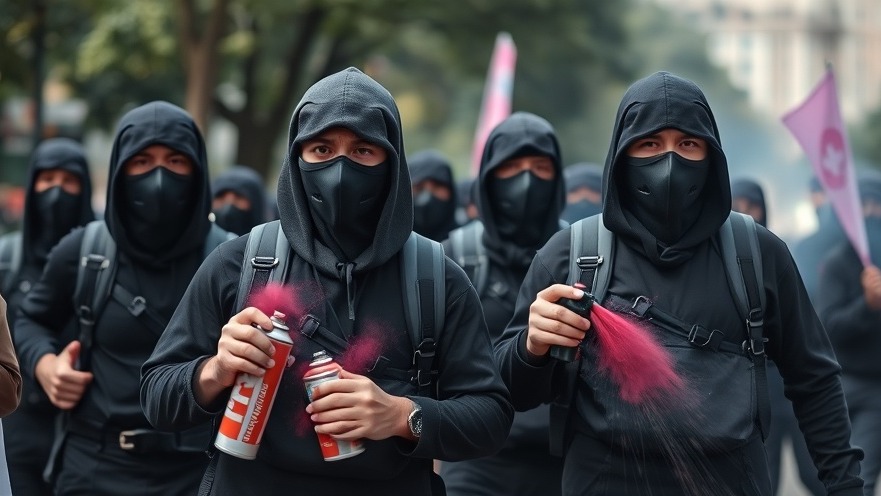
The Context of Antifa's Designation
In recent developments, President Trump announced the designation of Antifa as a terrorist organization, a move reminiscent of his previous efforts in May 2020 that ultimately went nowhere. This bold claim has raised eyebrows, mainly because Antifa isn't a formal organization but a loose collection of activists advocating for anti-fascist sentiments. As Trump's declaration unfolds, it brings forth compelling questions about the legal implications and potential consequences of affiliating an ideology with terrorism.
Understanding Antifa: More Than a Label
Anti-fascist activists, known collectively as Antifa, are motivated by a desire to combat what they perceive as rampant far-right extremism. Their tactics can sometimes include direct action, which has led to instances of violence or property damage. However, it’s essential to note that the vast majority of individuals who align with the Antifa label do not involve themselves in illegal activities. Instead, they see themselves as defenders of civil rights and social justice. This raises critical questions about effective law enforcement and the uses of designating groups as terrorist organizations.
Legal Challenges Ahead
The legal complexities surrounding the classification of Antifa as a terrorist organization cannot be understated. Experts argue that under U.S. law, the term “terrorist organization” is typically reserved for groups with structured hierarchies and specific aims reflecting a pattern of violence. Since Antifa does not fit this mold, the potential for an official designation becomes procedurally challenging. Legal experts also worry about implications for First Amendment rights, emphasizing that labeling activists as terrorists could infringe upon their freedom of speech.
Political Implications and the Repercussions of Designation
By designating Antifa as a terrorist group, Trump stirs the political pot, especially so soon after the contentious killing of conservative activist Charlie Kirk. This gesture resonates with his base who are increasingly feeling threatened by left-wing activism. However, it also has the potential to escalate tensions between various political factions within the U.S., leading to further unrest. Observers note that such rhetoric could embolden both sides in an already polarized political landscape.
What This Means for Protest Movements
Designating political or social movements as terrorist organizations sets a concerning precedent for public dissent. Activists fear that such labels can lead to increased aggression from law enforcement against peaceful protests, constraining the avenues for social change. There’s also a risk that many who protest broadly against systemic issues could be unfairly categorized alongside violent fringe groups, further complicating the already tense socio-political climate.
Public Reaction and Societal Ramifications
How the American public feels about this designation varies greatly, highlighting a national divide. Supporters of Trump view this move as a necessary step to combat extremism, while opponents argue it undermines civil rights and the right to protest. In this context, educating the public on the differences between peaceful activism and violent extremism is crucial for informed dialogue. The ramifications of this designation could redefine the landscape of public protests and political dissent in the U.S., shaping future demonstrations significantly.
Concluding Thoughts
As President Trump's latest declaration regarding Antifa unravels, the implications of such a move will need careful consideration. It's essential for citizens to engage critically with the issues surrounding protest, free speech, and the intersection of law and order, recognizing that today's political climate can significantly impact freedoms tomorrow. Engage in discussions with your community to bring to light varying perspectives about political activism and safety in a democracy, laying the groundwork for constructive dialogue around these complex societal issues.
 Add Element
Add Element  Add Row
Add Row 



Write A Comment